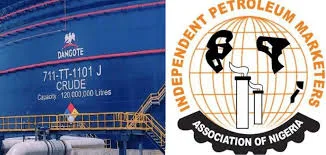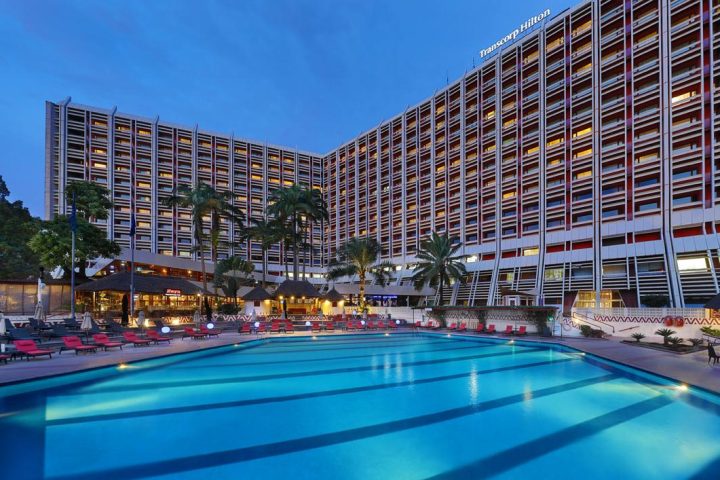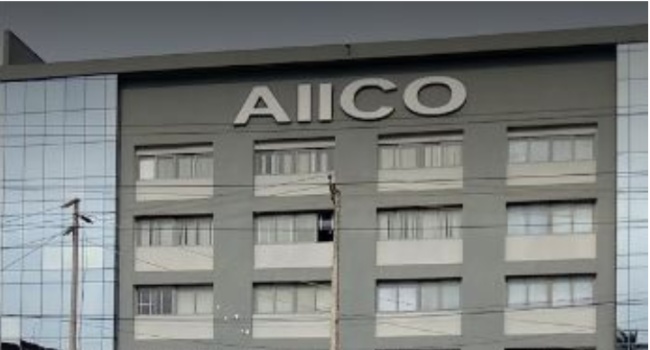The recent exchange between Aliko Dangote, owner of the $20 billion Dangote Petroleum Refinery, and Nigerian oil marketers reveals a pressing question in Nigeria’s fuel supply: Who is truly responsible for the petrol distribution delays?
With Dangote’s refinery now operating, many expected the facility to satisfy local demand. However, the reality appears more complex.
Join our WhatsApp ChannelDangote Calls Out Marketers
Dangote’s remarks on Tuesday stirred up controversy as he called out marketers, alleging they were slow to buy from his refinery. “I have a refinery. I’m not in the business of retail. If I’m in the business of retail then you can hold me responsible. But what I’m saying is that the retailers should please come forward and pick,” Dangote said. His message seemed clear: the refinery is ready, but marketers are not stepping up to lift the product.
Yet, marketers are countering this claim, arguing that logistical and procedural barriers complicate their access to Dangote’s refined products. In response, Billy Gillis-Harry, President of the Petroleum Retail Outlet Owners Association of Nigeria (PETROAN), expressed frustration, emphasising that marketers had been trying to arrange business meetings with Dangote’s team without success.
Oil Marketers Demand Transparency
The oil marketers’ willingness to purchase petrol from Dangote’s Refinery is undeniable, but they claim they’re being stalled by a lack of direct access. “We are willing to patronise Dangote, but we cannot do it in the air. We must have a productive business meeting with him that is transparent enough,” Gillis-Harry asserted. Without a proper business arrangement, he argued, it’s impractical for marketers to begin lifting products from the facility.
Gillis-Harry added, “If he has 500 million litres, we are willing to be one of the off-takers. Our membership is significant and spread across the nation. We could make for a reliable client base, yet no concrete meeting has been held.”
READ ALSO: Oil Marketers Demand Clearer Path To Buy from Dangote Refinery As Petrol Price Soars
Delays Due to Free Trade Zone Regulations?
The Independent Petroleum Marketers Association of Nigeria (IPMAN) also voiced concerns. Abubakar Maigandi, IPMAN’s National President, indicated that their members have faced considerable delays at the refinery, despite NNPCL directing them to load fuel from the plant. “Some marketers have waited with their trucks for four days without being able to load any product,” he noted.
This delay has led some to speculate that the refinery’s location in a free trade zone might be a contributing factor. Maigandi suggested that if Dangote prioritised domestic needs, direct registration for independent marketers could ease the supply chain issues. “Dangote should consider registering independent marketers directly. This would simplify the process and prevent such delays in accessing the product,” he advised.
Import Licenses Add a New Layer of Complexity
The issue of import licenses is another critical factor in this fuel distribution puzzle. The Dangote Refinery, situated in the Lekki Free Trade Zone, reportedly sells to marketers with valid import licenses, according to refinery insiders. Hammed Fashola, IPMAN’s National Vice President, confirmed that marketers holding these licenses were the first to be served, adding, “And that’s why we are trying as much as possible to get our import license too.”
For those without these licenses, the wait is long. According to sources, marketers without the necessary documentation have struggled to gain direct access to the refinery’s products. This leaves smaller independent marketers in a challenging position, leading to increased frustration among the country’s petrol retailers.
Expert Opinions: Waivers Could Solve the Bottleneck
Professor Emeritus Wumi Iledare, an energy expert, weighed in on the situation, advising that the government could grant waivers to enable smoother domestic sales. “We recognise Dangote is in a free trade zone. Without a waiver, buying from the refinery is essentially an import. But, considering the Federal Government’s arrangement, this could be modified. Allowing a willing-buyer, willing-seller model would benefit both parties and prevent Dangote from establishing a monopoly,” he explained.
Iledare added that marketers’ interests must be considered to avoid potential monopolistic trends. “The Nigerian market should have a variety of options. If they rely only on Dangote, the refinery risks becoming a monopoly. The government must look at this from a consumer perspective, ensuring fair market access for all.”
Conflicting Messages on Product Availability
In his discussion with President Bola Tinubu, Dangote asserted that his refinery has 500 million litres of petrol ready for the Nigerian market. But marketers such as Gillis-Harry remain skeptical, given the prolonged delays and lack of clarity. “Let Nigerians know that PETROAN is willing to buy from him. But we cannot proceed without a formal arrangement,” he insisted.
Maigandi echoed similar sentiments, raising doubts about Dangote’s statement. “If the refinery truly has 500 million litres, then there should be no reason our members couldn’t load after four days. We are willing to buy the product directly if the refinery is ready to sell to us, but for now, our members can’t access it even after paying,” he noted during an interview on Channels TV.
Fuelling the Future: What Lies Ahead?
As Dangote’s refinery and Nigerian oil marketers stand at an impasse, the implications for Nigeria’s fuel supply are serious. Dangote’s refinery is one of the largest in Africa, with the potential to produce over 30 million litres of fuel daily at full capacity. However, if these supply chain issues persist, Nigeria might continue to rely on imported petrol, with its attendant costs and challenges.
For Nigerians, the message is mixed. While the refinery promises a significant shift in the country’s energy landscape, logistical hurdles and regulatory complexities cast a shadow on its impact. The government’s role in mediating and possibly facilitating a more direct route for marketers to access Dangote’s products is vital.
In the end, whether this $20 billion facility will become the cornerstone of Nigeria’s fuel independence or a high-stakes tug of war among industry players remains to be seen.
Emmanuel Ochayi is a journalist. He is a graduate of the University of Lagos, School of first choice and the nations pride. Emmanuel is keen on exploring writing angles in different areas, including Business, climate change, politics, Education, and others.
- Emmanuel Ochayihttps://www.primebusiness.africa/author/ochayi/
- Emmanuel Ochayihttps://www.primebusiness.africa/author/ochayi/
- Emmanuel Ochayihttps://www.primebusiness.africa/author/ochayi/
- Emmanuel Ochayihttps://www.primebusiness.africa/author/ochayi/




















Follow Us